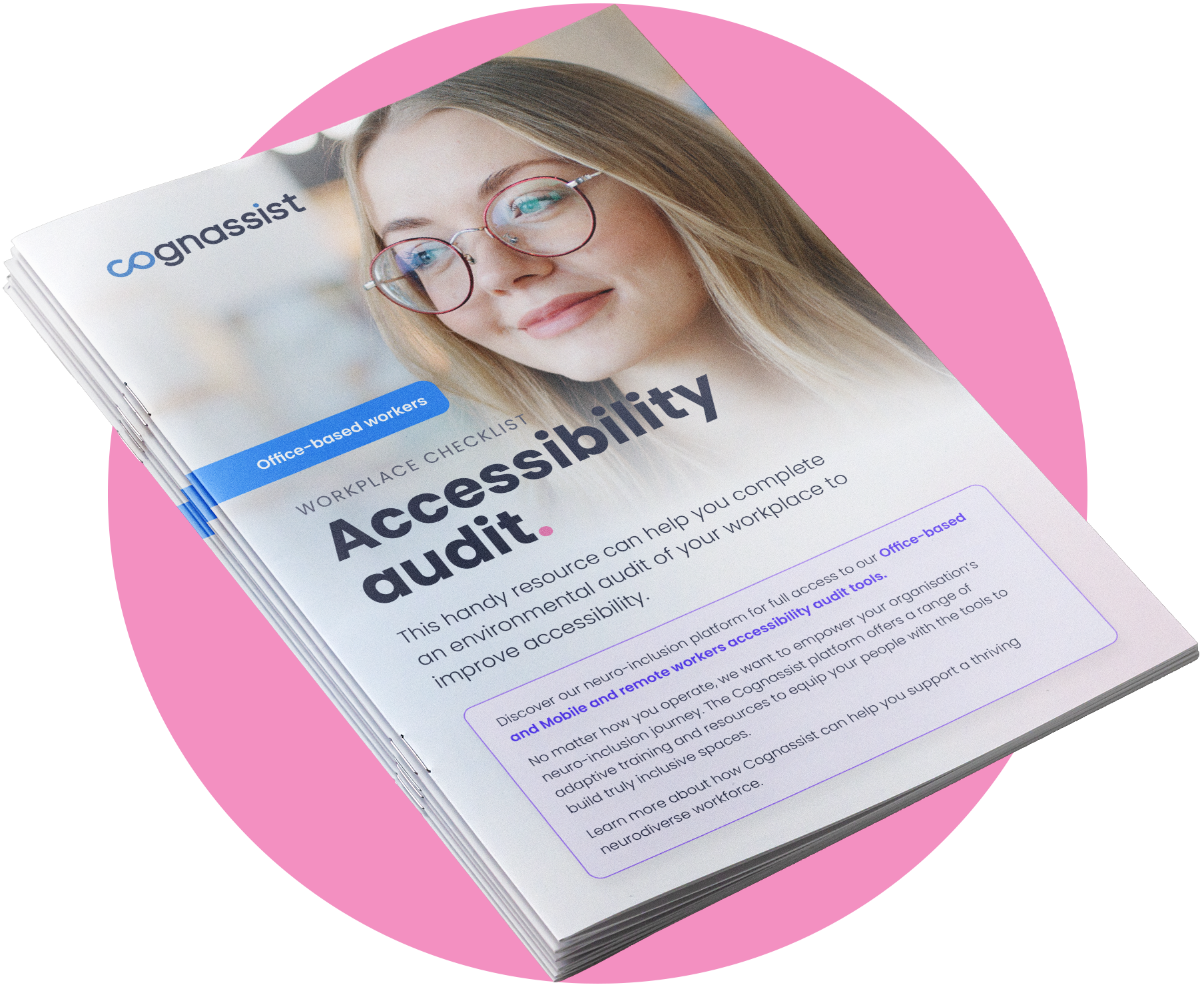Our CEO Chris Quickfall on Dealing with Stress and Anxiety
I’m no stranger to stress and anxiety.
I’m the CEO of two high growth companies, lost all my money twice and all my hair once with alopecia… Stress-induced alopecia, no less.
And because of this, I take my mental health super seriously.
I wasn’t diagnosed with dyslexia until I was 21.
When I was growing up, no one was talking about cognition in education or neurodiversity. Neither I or those around me knew my cognition was different. I had to figure out my coping strategies on my own, I couldn’t replicate those of my peers.
It wasn’t until I had a cognitive assessment at university that a neuropsychologist explained that my brain processes information and what that means for me, which was pivotal because it gave me a framework to explore and apply, which I am still doing today.
But it’s frustrating that only the wealthy can afford these expensive assessments, or, like me, you make it through to higher education where there are grants available – that’s what drives me to do my work.
Mental health is most damaging when it’s not addressed and it’s very hard to address it alone.
I’ve found my daily work meetings harder now because we’ve all lost a lot of the non-verbal cues from people’s body language.
I can’t always tell when people are having a good day or a bad day, or more crucially, the mild nuances normally conveyed non-verbally.
It helps to maintain clear communication and I’ve made my own adjustments to get to grips with remote working – mostly notes, lots of notes.
Look, I feel super lucky.
I’ve spent years building my own coping strategies and I’ve had two previous threats to my businesses.
Consequently, I feel like I was more prepared for our current situation than most but it’s still not been an easy time.
So, I can only imagine how it is for people less prepared, with fewer strategies to cope with all the stress, anxiety, sleepless nights and uncertainty we’re all feeling.
I run Cognassist, which is a company all about identifying and supporting cognitive diversity.
The more diverse your cognition, the more difficult it is to source and build relevant coping strategies.
This usually leads to people thinking they’re just bad at learning, when, really, they’re not given the right tools to learn – this was me before I had my assessment at 21.
We’ve actually had a record number of students taking our cognitive assessment since lockdown and I am over the moon about this.
For the students who identify, this might be the first time they will get any support that is tailored to how their brain works and they’ll get it at a time when they need it most.
This is one of the positives I’ve focused on over the last few months. Although it has also been brilliant to spend more time with my girls at home and have them come in and show me a snail they found or tell me there is a dragon in the garden.
Despite my fair share of challenging experiences, I don’t have a catch-all way to cope with stress.
It’s just about making small changes and learning what works for you.
Exercising is a big one for me but this won’t work for everyone.
We’re all diverse and all our brains are neurodiverse.
I want a future where cognitive diversity is accepted like any other type of diversity and tutors can make automatic adjustments to any given learning environment – like adjusting the driver’s seat in a car.
I am working towards this because I want everyone, including my daughters, to get a cognitive assessment as standard from the age of 7 through to old age, meaning that everyone can get a head start on building the tools they need to thrive in a changing world.
#MentalHealthAwarenessWeek
*This article was originally posted on LinkedIn by Chris Quickfall. We have his express permission to publish it here.
To help with stress, you can learn more about how to tackle stress in positive ways. And if you are struggling with your mental health, please reach out to someone you know or use a mental health hotline.
You are not alone.

Chris Quickfall
CEO
We’ll help you conduct a workplace accessibility audit:
- Understand ways to implement neuro-inclusion at work
- Get a condensed look at Cognassist’s support resources
- Simple to use and interactive checklist
- Conduct individually as an employee or universally as an HR or ED&I professional

